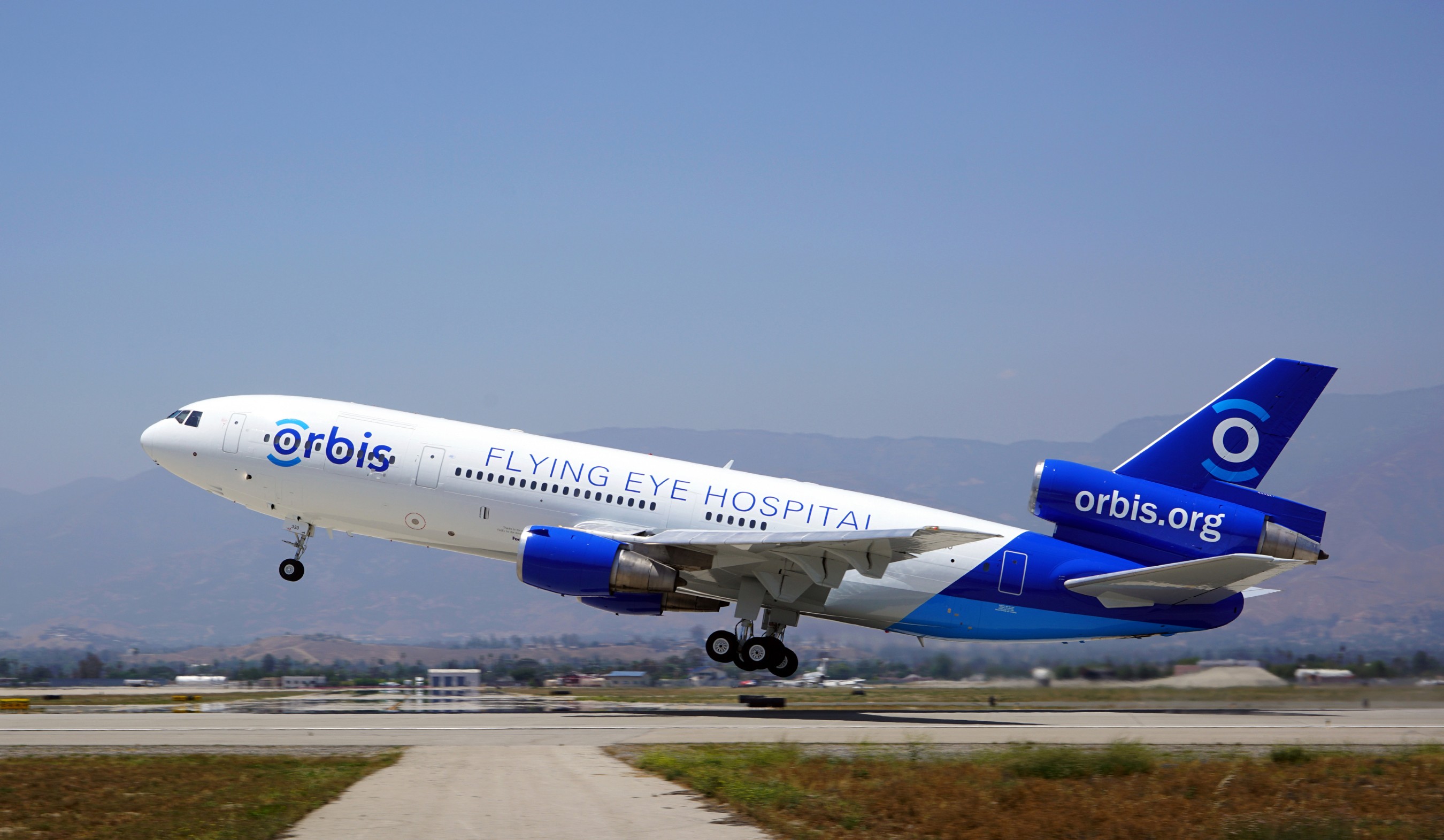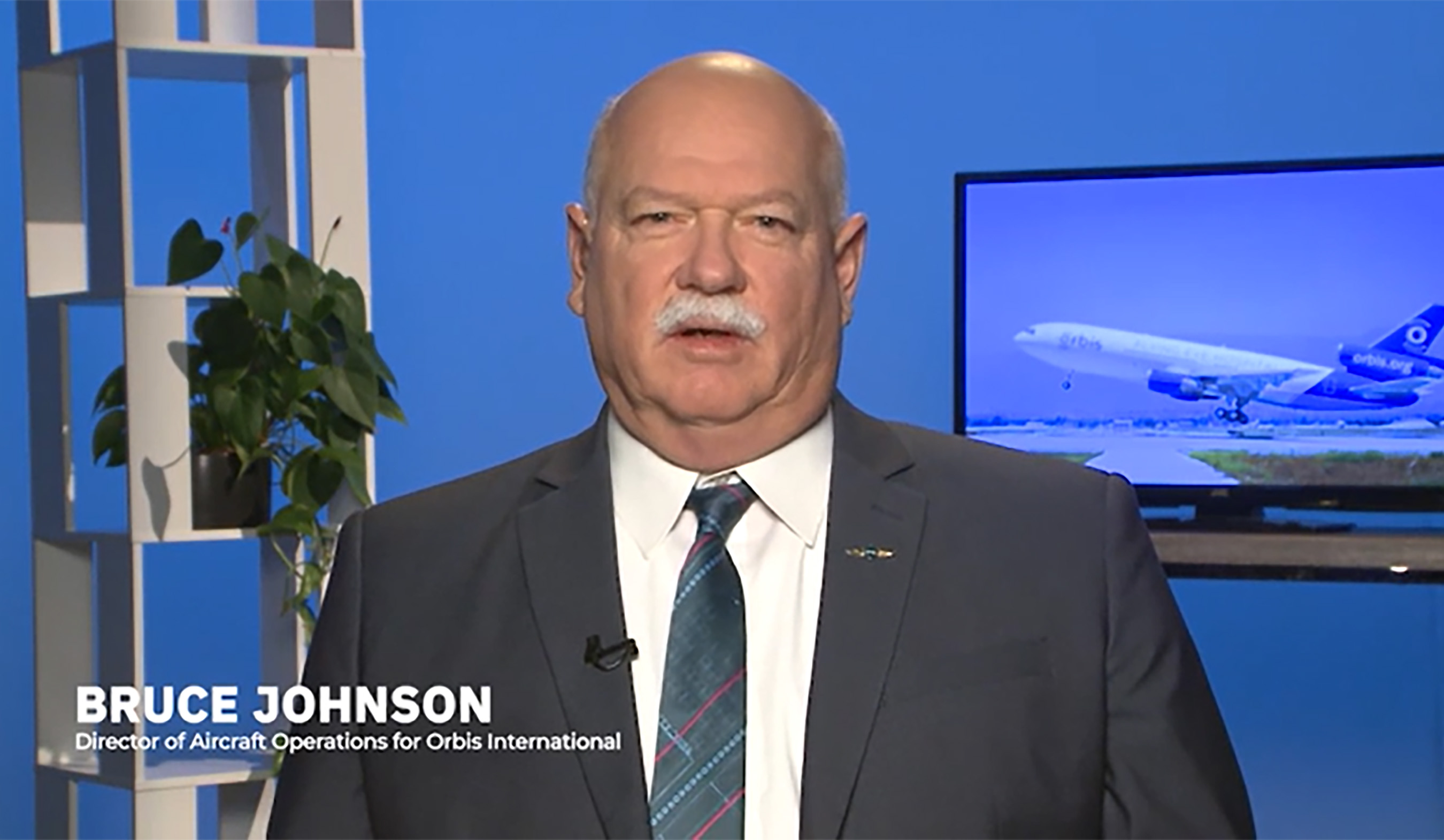Learn About the Flying Eye Hospital and How it’s Helping to Combat Avoidable Blindness and Vision Loss
Learn MoreBACKGROUND:
Avoidable blindness and vision loss affect about 1.1 billion people globally, but a staggering 90% of these cases are completely avoidable, meaning they could be treated or prevented with the right care. Orbis International, a global eye care nonprofit, fights avoidable blindness by training eye care professionals in areas with the greatest need so they can save sight in their communities. The Flying Eye Hospital, a fully accredited teaching hospital on a plane that took its first flight 40 years ago, is one of the ways trainings are provided. It recently celebrated a return to in-person programming after setbacks caused by the pandemic.
While in-person trainings were paused, Orbis reached dozens of countries through virtual Flying Eye Hospital trainings and began training more people than ever before through its telemedicine and e-learning platform, Cybersight. Now, reintroducing in-person training programs, there is an opportunity to make a greater impact than ever—and ensure patients continue to receive safe, world-class care, no matter where they live.
As we’re heading towards the giving season, the gift of sight is among the most impactful, with ripple effects that can be felt not just by individuals, but their families and communities. Every $1 invested in eye health in low- and middle-income countries is estimated to yield $4 in economic gain. On November 17th, Bruce Johnson, Director of Aircraft Operations and Maintenance, will be available for interviews to discuss avoidable blindness, how the Flying Eye hospital is helping to combat this issue and ways people can get involved.
For more information please visit: www.orbis.org
MORE ABOUT BRUCE JOHNSON:
Bruce Johnson, Director of Aircraft Operations and Maintenance, has been part of Orbis International for over 15 years. He and his team are responsible for all aviation aspects of the Orbis Flying Eye Hospital, making sure the entire operation stays safe and efficient. His role encompasses everything from working on flight plans for Flying Eye Hospital projects and managing maintenance checks to working closely with local airport authorities to ensure the plane is safe to land and operate in the local country. Earlier in his career, Bruce served on active duty and in the reserves in the U.S. Air Force, where he worked as an aircraft mechanic and flight engineer, with a total time in service of 27 years before retiring in 2005. During his time in the reserve, he also worked at Boeing Aerospace as an instructor and evaluator flight engineer. Bruce then joined FedEx in 1996 as a professional flight instructor for DC-10 aircrafts, and in 2005, Bruce became a volunteer crew member on Orbis’s second-generation Flying Eye Hospital, a DC-10. In 2008, Bruce assumed his current role at Orbis.
Produced for: Orbis International




